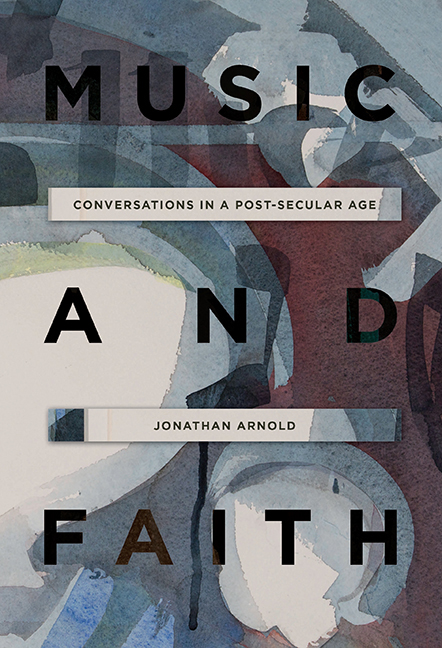Book contents
- Frontmatter
- Dedication
- Contents
- List of Illustrations
- List of Interviewees
- Preface
- Acknowledgements
- Introduction: Faith, Belief and Post-Secularism
- I MEDIEVALISM TO POST-SECULARISM
- II THE HUMAN MIND AND SOCIETY
- III BELIEF AND UNBELIEF
- 7 Music, Faith and Atheism
- 8 ‘Changing the Rumour about God’: Music and Anglican Clergy
- 9 Music, Faith and the Laity
- Conclusion
- Notes
- Bibliography
- Index
7 - Music, Faith and Atheism
from III - BELIEF AND UNBELIEF
Published online by Cambridge University Press: 01 September 2019
- Frontmatter
- Dedication
- Contents
- List of Illustrations
- List of Interviewees
- Preface
- Acknowledgements
- Introduction: Faith, Belief and Post-Secularism
- I MEDIEVALISM TO POST-SECULARISM
- II THE HUMAN MIND AND SOCIETY
- III BELIEF AND UNBELIEF
- 7 Music, Faith and Atheism
- 8 ‘Changing the Rumour about God’: Music and Anglican Clergy
- 9 Music, Faith and the Laity
- Conclusion
- Notes
- Bibliography
- Index
Summary
Lord, I believe; help my unbelief
In our Rectory garden we are fortunate to have a lawn shaded by three large flowering cherry trees. Last year my wife Emma, who is the parish priest, suggested that the garden would make a marvellous place for a labyrinth. There are many examples of labyrinths around the world which are used for spiritual purposes. Perhaps the most famous is in Chartres Cathedral, but others are created in natural environments, such as mowed into lawns. I thought the idea of having a labyrinth in our garden that anyone could come and walk would be an excellent idea and I relished the challenge of researching how to make one. Having found a suitable pattern and method, I set about creating it one sunny spring afternoon: measuring and marking the centre, the boundaries, twists and turns, and making sure that each path was even and clear. It took all afternoon for me to make sure that the labyrinth was properly mapped out before I started to mow. The process was totally absorbing. I had to concentrate entirely on the project in hand and I had no other concerns or interests while engaged in it. I believe that my mind had gone into what the psychologists call a ‘flow’ state of complete focus – a state I have known partially in other physically demanding and absorbing situations, such as long-distance walking or cycling. Once the mowing and the labyrinth were complete, I felt that I had spent a thoroughly fulfilling and purposeful afternoon [Figure 8].
The joy of the experience was not so much in the completion of the project. Indeed, I could have asked someone else more professional to complete the task and then I would simply have had to admire it. The joy was in the process. Likewise now, when anyone walks the circular route of the labyrinth, finding their way slowly to the centre, where they find the meagre rewards of a water-filled bird bath, the benefit of the experience is not in the final destination, which after all is only another piece of lawn, it is in the journey. It is the thought processes, prayers, meditations and the focus of the mind through the walking that makes a labyrinth a worthwhile spiritual exercise.
- Type
- Chapter
- Information
- Music and FaithConversations in a Post-Secular Age, pp. 165 - 177Publisher: Boydell & BrewerPrint publication year: 2019

